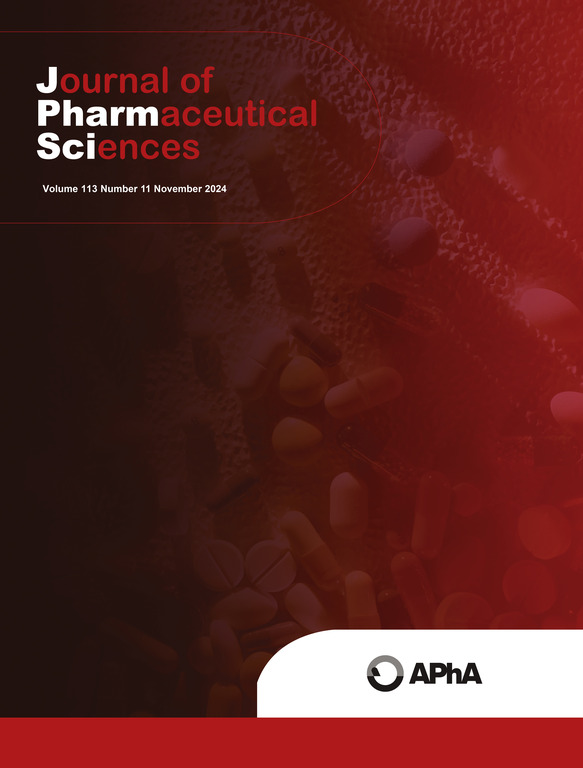Liposomal formulation co-encapsulating α-tocopheryl succinate and α-tocopherol ameliorates high-fat diet-induced obesity
IF 3.7
3区 医学
Q2 CHEMISTRY, MEDICINAL
引用次数: 0
Abstract
Lipid accumulation inhibition is a pivotal focus for anti-obesity drugs. α-Tocopheryl succinate (TS) is a derivative of α-tocopherol (T) that inhibits lipid accumulation, making it a propitious candidate for an anti-obesity agent. However, cytotoxicity of TS limits its application. Reactive oxygen species produced by TS are responsible for the cytotoxicity, which can be mitigated by T. Herein, we evaluated the effect of a liposomal formulation co-encapsulating TS and T (TS/T-lipo) on obesity. We prepared TS/T-lipo and evaluated the resultant cytotoxicity and lipid accumulation inhibition effect in vitro. TS/T-lipo showed a significant inhibitory effect on lipid accumulation without cytotoxicity. The inhibitory effect on lipid accumulation is likely due to upregulation of Uncoupling Protein 1, which causes lipid consumption. Moreover, we evaluated the effect of TS/T-lipo on a high-fat diet-induced obese mouse model and found that body weight significantly decreased in the TS/T-lipo group without elevation of liver toxicity or blood glucose levels. Additionally, increased glycerol serum levels are suggestive of increased lipolysis upon treatment with TS/T-lipo. Histological analysis supports inhibition of lipid accumulation by treatment with TS/T-lipo. Taken together, this evidence demonstrates that co-administration of TS/T can reduce cytotoxicity and may be a promising candidate for an anti-obesity drug.

联合包封α-生育酚琥珀酸酯和α-生育酚的脂质体制剂可改善高脂肪饮食引起的肥胖。
抑制脂质积累是抗肥胖药物研究的重点。α-生育酚琥珀酸酯(TS)是α-生育酚(T)的衍生物,具有抑制脂质积累的作用,是抗肥胖药物的理想候选物。然而,TS的细胞毒性限制了其应用。TS产生的活性氧负责细胞毒性,T可以减轻这种毒性。在这里,我们评估了一种脂质体制剂共包埋TS和T (TS/T-lipo)对肥胖的影响。我们制备了TS/T-lipo,并在体外评价了其细胞毒性和抑制脂质积累的效果。TS/T-lipo对脂质积累有明显的抑制作用,但无细胞毒性。对脂质积累的抑制作用可能是由于解偶联蛋白1的上调,导致脂质消耗。此外,我们评估了TS/T-lipo对高脂肪饮食诱导的肥胖小鼠模型的影响,发现TS/T-lipo组体重显著降低,但没有升高肝毒性或血糖水平。此外,血清甘油水平升高提示使用TS/T-lipo治疗后脂肪分解增加。组织学分析支持通过TS/T-lipo治疗抑制脂质积累。综上所述,这一证据表明TS/T联合施用可以降低细胞毒性,可能是一种有希望的抗肥胖药物。
本文章由计算机程序翻译,如有差异,请以英文原文为准。
求助全文
约1分钟内获得全文
求助全文
来源期刊
CiteScore
7.30
自引率
13.20%
发文量
367
审稿时长
33 days
期刊介绍:
The Journal of Pharmaceutical Sciences will publish original research papers, original research notes, invited topical reviews (including Minireviews), and editorial commentary and news. The area of focus shall be concepts in basic pharmaceutical science and such topics as chemical processing of pharmaceuticals, including crystallization, lyophilization, chemical stability of drugs, pharmacokinetics, biopharmaceutics, pharmacodynamics, pro-drug developments, metabolic disposition of bioactive agents, dosage form design, protein-peptide chemistry and biotechnology specifically as these relate to pharmaceutical technology, and targeted drug delivery.

 求助内容:
求助内容: 应助结果提醒方式:
应助结果提醒方式:


